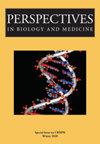利用遗传祖先进行研究的伦理框架
IF 0.7
4区 医学
Q2 HISTORY & PHILOSOPHY OF SCIENCE
引用次数: 0
摘要
摘要:广泛的研究利用遗传变异模式来推断个体之间的遗传相似性,通常被称为遗传祖先。这项研究包括推断人类人口统计学历史,了解特征的遗传结构,以及预测疾病风险。研究人员在使用基因祖先时不仅构建了一个智力调查,他们还创建了具有更广泛社会影响的分析框架。本文以道德伦理的精神为这些研究人员提供了一个伦理框架:该框架旨在培养研究人员对其工作的伦理层面做出反应的能力,而不是关注规则遵循。作者确定了知识自由和责任的一个首要原则,指出自由的所有形式都伴随着责任,他们确定并定义了四个共同维护研究人员知识责任的原则:真实性、公正性和公平性、反种族主义和公共利益。研究人员应该使他们的实践与这些原则保持一致,为了帮助实现这一点,作者列举了研究实践违反这些原则的三种常见方式,建议了一个循序渐进的过程来使研究选择与原则保持一致的过程,提供了实现一致的经验法则,并给出了一个可行的案例。文章最后确定了研究人员根据拟议框架采取行动所需的支持。本文章由计算机程序翻译,如有差异,请以英文原文为准。
An Ethical Framework for Research Using Genetic Ancestry
ABSTRACT:A wide range of research uses patterns of genetic variation to infer genetic similarity between individuals, typically referred to as genetic ancestry. This research includes inference of human demographic history, understanding the genetic architecture of traits, and predicting disease risk. Researchers are not just structuring an intellectual inquiry when using genetic ancestry, they are also creating analytical frameworks with broader societal ramifications. This essay presents an ethics framework in the spirit of virtue ethics for these researchers: rather than focus on rule following, the framework is designed to build researchers’ capacities to react to the ethical dimensions of their work. The authors identify one overarching principle of intellectual freedom and responsibility, noting that freedom in all its guises comes with responsibility, and they identify and define four principles that collectively uphold researchers’ intellectual responsibility: truthfulness, justice and fairness, anti-racism, and public beneficence. Researchers should bring their practices into alignment with these principles, and to aid this, the authors name three common ways research practices infringe these principles, suggest a step-by-step process for aligning research choices with the principles, provide rules of thumb for achieving alignment, and give a worked case. The essay concludes by identifying support needed by researchers to act in accord with the proposed framework.
求助全文
通过发布文献求助,成功后即可免费获取论文全文。
去求助
来源期刊

Perspectives in Biology and Medicine
医学-科学史与科学哲学
CiteScore
1.40
自引率
20.00%
发文量
42
审稿时长
>12 weeks
期刊介绍:
Perspectives in Biology and Medicine, an interdisciplinary scholarly journal whose readers include biologists, physicians, students, and scholars, publishes essays that place important biological or medical subjects in broader scientific, social, or humanistic contexts. These essays span a wide range of subjects, from biomedical topics such as neurobiology, genetics, and evolution, to topics in ethics, history, philosophy, and medical education and practice. The editors encourage an informal style that has literary merit and that preserves the warmth, excitement, and color of the biological and medical sciences.
 求助内容:
求助内容: 应助结果提醒方式:
应助结果提醒方式:


